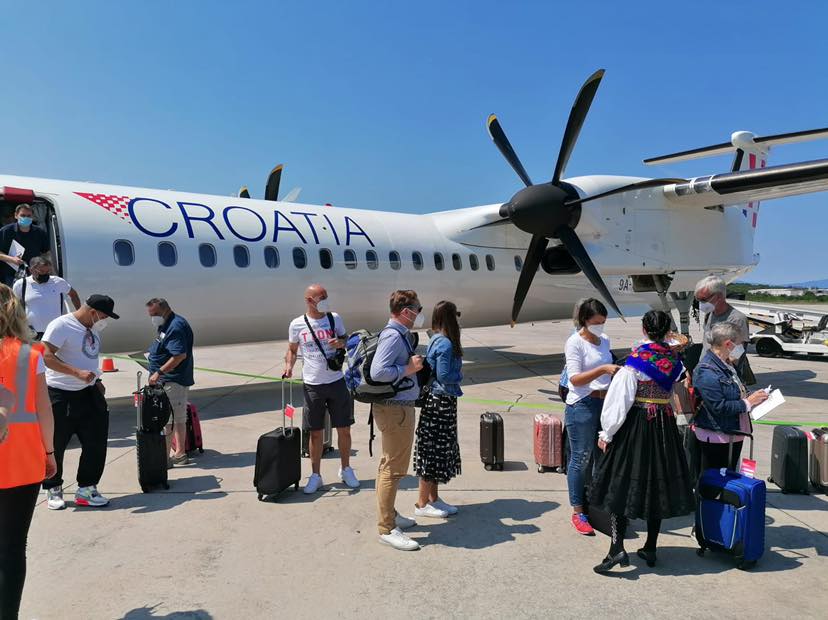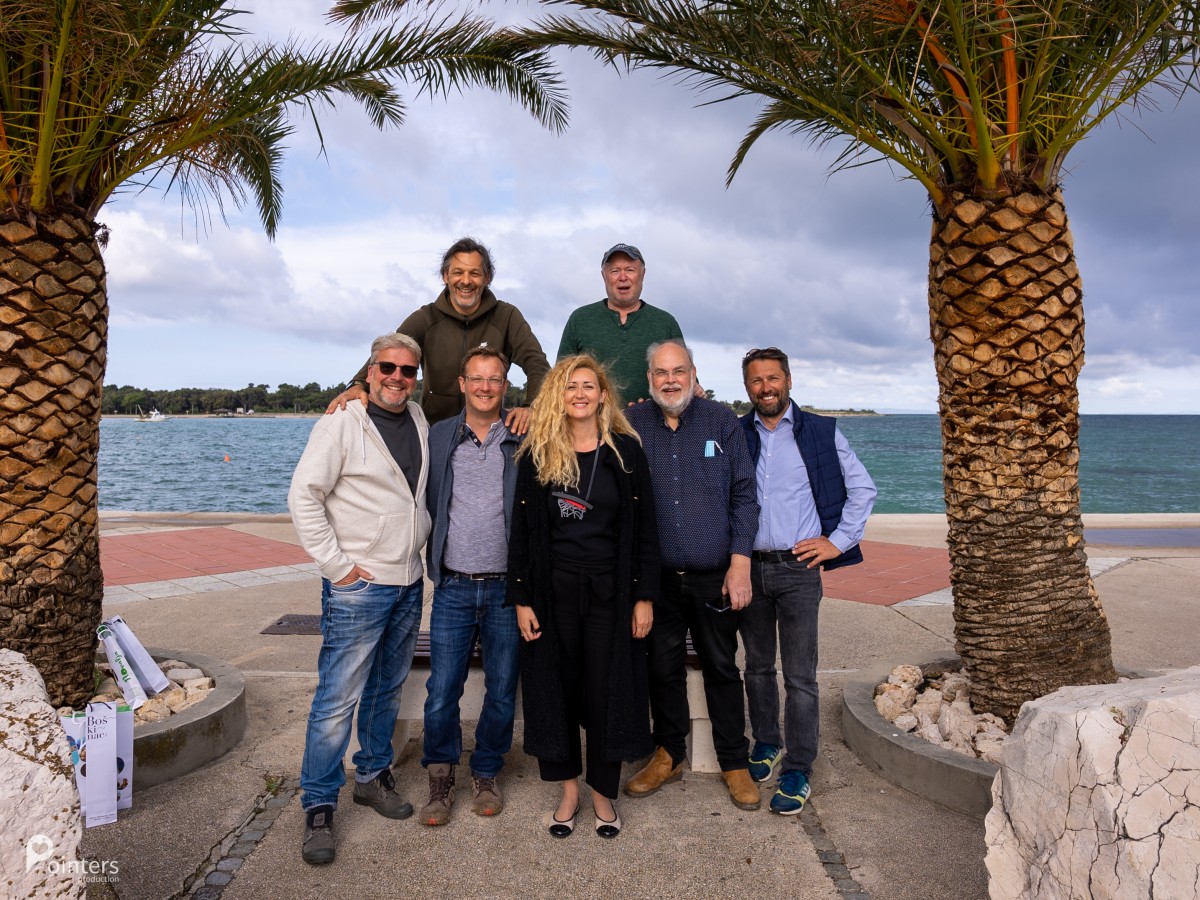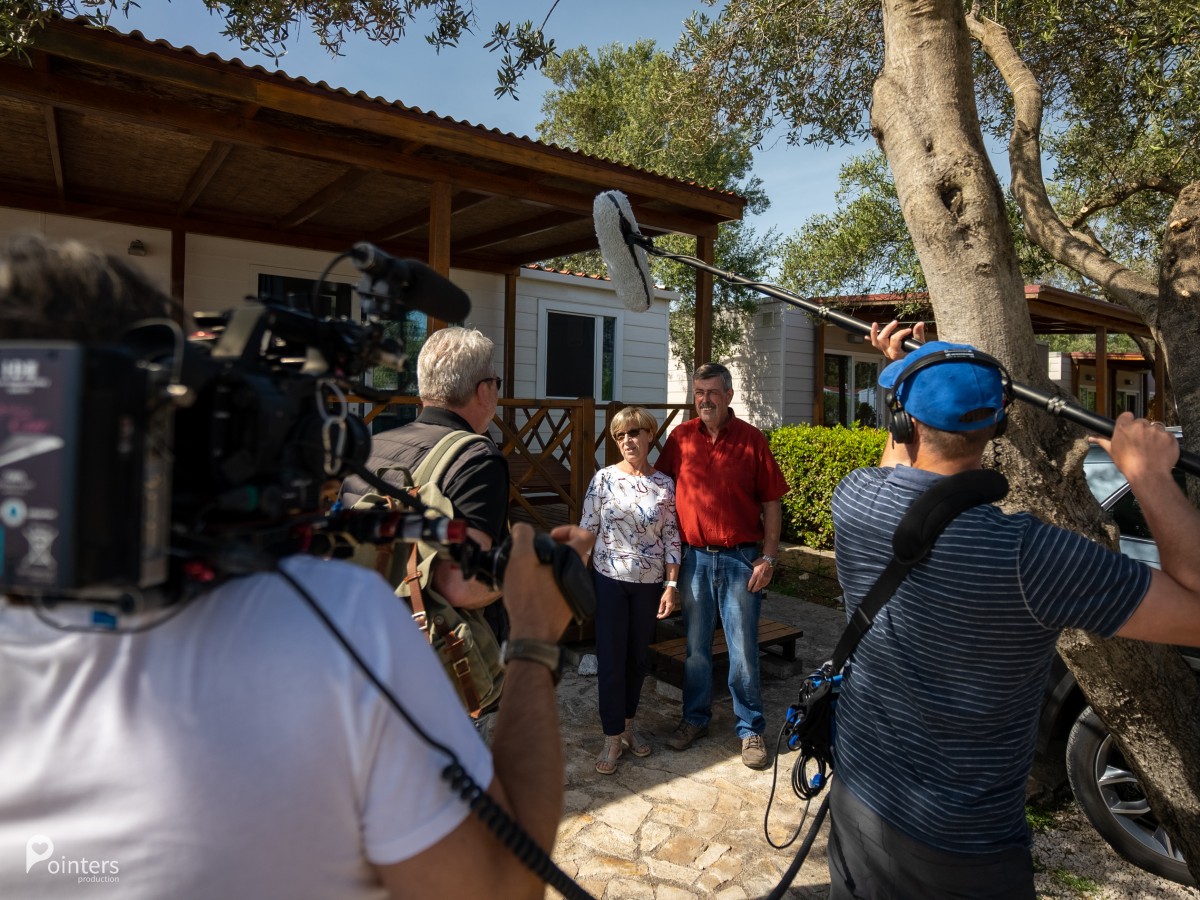Croatian Tourism Minister Nikolina Brnjac Visits Bavaria to Discuss Tourism Cooperation
ZAGREB, 15 June, 2021 - Croatian Tourism Minister Nikolina Brnjac met with Bavaria's Deputy Premier and Minister of Economic Affairs, Regional Development and Energy, Hubert Aiwanger, in Munich on Monday to discuss ways of increasing cooperation in the tourism sector.
Brnjac said that Croatia and Bavaria would continue exchanging experience and best practice in the digitalisation of tourism services and the development of cultural and rural tourism, her ministry announced in a press release.
"Croatia and Bavaria put emphasis on the development of sustainable tourism, and their cooperation in many areas of common interest has been going on for about 50 years within the Bavarian-Croatian Commission," Brnjac said.
She noted that half of German tourists visiting Croatia come from Bavaria, which is why it is very important for Croatia to convey the information on the activities that are being undertaken so that Croatia is recognised as a pleasant and safe destination.
Bavaria supports Croatia's Schengen membership bid
Aiwanger said there was a lot of space for cooperation between Croatia and Bavaria in the tourism sector, emphasising that Bavaria supported Croatia's accession to the Schengen area next year as an important precondition for facilitating movement of tourists.
The working meeting was also attended by the deputy president of the ADAC motoring association for tourism and finance, Karlheinz Jungbeck.
Brnjac and Jungbeck discussed preparations for the summer tourist season as well as expectations and plans for future development. Brnjac said that the cooperation with ADAC, which has 22 million members, ensured the greater visibility of Croatia on the German market, adding that today's meeting set a framework for future institutional cooperation.
According to ADAC, there is a growing interest in visiting Croatia, notably in the camping segment. This year ADAC included 134 Croatian campsites on its list of the best European campsites, the same number as in 2019, and 13 of the campsites were rated as ADAC Superplatz 2021.
About 42,000 Germans are currently vacationing in Croatia, mostly in Istria. Last year German tourists generated 1.6 million arrivals and 12.7 overnight stays, which was 60 percent of overnight stays made in 2019 when a record 21.2 million overnight stays were generated by German visitors. Last year, the 12.7 million overnight stays made by German tourists accounted for 23 percent of total overnight stays in Croatia.
For more about politics in Croatia, follow TCN's dedicated page.
74 Percent of German Investors Would Do Business, Invest in Croatia Again
June the 12th, 2021 - It might come as an enormous surprise to many who are used to reading about Croatia's troubles when attracting and indeed keeping hold of foreign investments, but it seems that the German investor impression of Croatia has dramatically improved of late. Many would choose to invest in Croatia once again.
As Poslovni Dnevnik/Marija Brnic writes, as written above, the perception of Croatia in the eyes of German investors has improved significantly - unlike two years ago, when almost half of them were absolutely sure they wouldn't decide to invest in Croatia again. According to the latest research conducted by the German-Croatian Chamber of Industry (AHK) now almost three quarters (74%) would choose to invest in Croatia.
However, the improvement compared to previous years (last year the traditional survey wasn't conducted due to the pandemic), still lags behind the assessments of German businessmen from other Central and Eastern European countries surveyed, in which as many as 85% of German investors responded very positively to.
The improvement in the assessment of business and investment is also noticeable in other countries, where two years ago, 79% of German business owners were ready to potentially risk an investment (54% in the Republic of Croatia). In terms of the quality of the location for investments, Croatia is still in 8th place among the 16 observed countries, with Estonia, the Czech Republic, Poland and neighbouring Slovenia at the very top.
According to Thomas Sichl, President of the AHK Management Board, these results about the feelings German investors have about Croatia are better than expected, and what is especially significant in the scope of the AHK survey is the assessment of the current situation and business recovery in conditions disrupted by the ongoing coronavirus pandemic.
It's absolutely true that there are no major changes in business expectations compared to the 2019 survey in Croatia or in other countries - 50% expect that the situation will remain unchanged compared to the previous year, and 43% that it will be better, with a mere 7% expecting that it will be less favourable.
But about a third of German companies surveyed said they had already reached pre-pandemic levels, while 12% expected to return to then-levels by the end of this year, and 38% said it would not be realistic in their case before 2022, 14% expect recovery only in 2023 and 2% do not expect recovery whatsoever.
This year’s standard annual AHK survey also included the question of government measures to help businesses mitigate the effects of lockdowns and pandemic-induced disruption on their businesses.
The biggest weaknesses in the Croatian investment and business case are usually dominated by corruption, the sheer non-transparency of public procurement procedures and legal uncertainty in the AHK survey, which is still the case, and the biggest advantages are EU membership, quality skilled labour and the level of productivity.
However, AHK representatives also point out the potential which could result from Croatia's entry into Schengen and the Eurozone. They claim that in their view, Croatia is making good progress in both of those respects.
Another positive point from this survey that the share of companies that assess the current economic situation as negative has fallen compared to 2019 from 61% to 49%, and overall, companies are much more optimistic about their own business situation compared to how they felt two years ago.
Then, 27% rated their business situation as good, and now 44% of them give it that rating. When looking at about 20 aspects of doing business in Croatia, AHK respondents give an average score of 3.29, which is better than 3.55 from 2019, since one was the best and five was the worst.
For more, follow our dedicated business section.
Germany Removes Several Croatian Counties from List of COVID-19 Risk Areas
ZAGREB, 4 June 2021 - Germany has removed large parts of Croatia from its list of COVID-19 risk areas, the Robert Koch Institute said on Friday.
As of 6 June, Dubrovnik-Neretva, Istria, Karlovac, Krapina-Zagorje, Požega-Slavonia and Split-Dalmatia counties are no longer epidemiologically risk areas, the Institute said.
This means that travellers from those counties no longer have to register online, show a negative test or go into quarantine upon entering Germany. This does not apply to travellers from other Croatian counties.
A negative COVID-19 test is still mandatory for entering Germany by plane.
Croatian neighbours Bosnia and Herzegovina, Slovenia and Serbia are still listed as risk areas.
For more on news in Croatia, follow TCN's dedicated page.
For all you need to know about coronavirus specific to Croatia, including travel, border, and quarantine rules, as well as the locations of vaccination points and testing centres across the country, make sure to bookmark our dedicated COVID-19 section and select your preferred language.
Croatia Airlines Reintroduces Summer Flights Between Rijeka and Munich
ZAGREB, 3 June 2021 - Croatia Airlines (CA) on Thursday operated its first flight this season between Munich and Rijeka.
The reintroduction of regular flights between Rijeka and Munich is part of the plans to renew and intensify flight arrangements from Croatia to other European destinations during this summer season.
CA flights on the Rijeka-Munich route will available on Thursday and Sunday this summer, plus also on Tuesday during July, the Croatian air company said.

First flight on the route Munich-Rijeka today (Croatia Airlines Official Facebook Page)
CA plans to operate flights to seven Croatian destinations and another 18 destinations in Europe this summer.
Zagreb will be connected with 14 European destinations, Split with 12, and Dubrovnik with six destinations outside Croatia, for instance.
Follow the latest on flights to Croatia HERE and the latest travel updates and COVID-19 news from Croatia HERE.
For more on travel in Croatia, follow TCN's dedicated page.
Promotional Film "My Novalja on the Island Of Pag" Wraps Up Production
May 15, 2021 - A German film crew visited Novalja last week to shoot a promotional film called ‘‘My Novalja on the Island of Pag’’, and will premiere in mid-June 2021.
The Tourist Board of the City of Novalja, in cooperation with the company Pointers Travel d.o.o. and in co-production with the German production company Blue Planet TV from Berlin, agreed to collaborate on a 22-minute report on the tourist destination Novalja called Meine Novalja Auf Dem Inseln Pag (My Novalja on the Island of Pag)
As turistickeprice.hr reports, from 6 to 13 May 2021, the German film crew visited the city of Novalja and shot a promotional film that will be shown from mid-June 2021 through a minimum of 30 broadcasts on numerous TV stations throughout the Western European market. Five people from Blue planet TV production and two people from the Osijek company Pointers Travel d.o.o., video and TV production department, took part in the production of this format, and they are also actively involved in the organization of production.

The host of the travel promotional film with the working title "My Novalja on the Island of Pag" is the famous German actor Oliver Hörner, who will guide viewers through a report on Novalja and all its peculiarities.
The report will be shown and promoted through numerous channels, which will achieve multi-million viewers, namely: broadcasting on ANIXE auf Reisen (one of the most popular German travel channels), NTV, RNF (Metropolregion Rhein-Neckar, Mannheim). Also, the report will be distributed via the Waipu TV platform, as well as Amazon Prime and Samsung TV Plus channels.
‘‘Our expectations are that with this project and the recorded report, Novalja will certainly become an even more important destination, which in this way will directly access the German-speaking market and beyond and show all its attractions that make it special and set it apart from other tourist destinations’’, said the Director of the Tourist Board of Novalja, Marina Šćiran Rizner.

The filming started in Novalja: on its squares, in the churches of St. Catherine and Our Lady of the Rosary within which there is a floor mosaic from the 4th century, in the City Museum from which one enters the unique Ancient aqueduct from the 1st century, on the Rose of the Winds, the city beaches. Furthermore, it was filmed in the Straško camp, the Liberty, Olea and Boškinac hotels, Novaljsko polje, Stara Novalja, the Žigljen ferry port, the Pag bridge and numerous beaches in the City area.
Through the magical Gardens of Lun Olives, where the famous actor was greeted by a girl in traditional costume with a basket of local delicacies, he rode a horse to the oldest olive, tasted raspberry oil, and drank tea from Lun olive leaves.

In the early morning hours, when the team was hosted by extremely kind hosts - the owners of the family farm VIDAS, Mr. Oliver taught the sheep how to make Pag cheese, and for breakfast, homemade delicacies were served, such as Pag curd. At the host family farm Škunca, the team enjoyed the immortelle fields, listening with great interest to the story of organic production and processing of medicinal and aromatic plants.
‘‘This is my first time on your island and I am really amazed by its landscapes and places. I can't help but get the impression that adventures like cycling, trekking, kayaking are waiting for you around every corner. I am also delighted with your cultural and historical sites. I will definitely be back to your beautiful island again’’, Oliver Hörner pointed out with enthusiasm.

All the interesting content listed here, framed in the story that will be told through this film, will surely intrigue and arouse interest in choosing a destination for German tourists for the upcoming summer season, convinced that Novalja will be their first choice.
‘‘Tourists from Germany have been realizing almost the largest tourist traffic in Novalja for many years, and our mission is to constantly invest in promotional activities in the main traditional emitting markets, which in the 2020 season showed their loyalty in choosing Croatia and Novalja as their first summer destinations’’, added Marina Šćiran Rizner.
The promotional film was filmed in the city of Novalja, which is located on the island of Pag, and you can find more information about what it can offer you on your next trip, in Total Croatia’s Pag in a page, HERE. Total Croatia’s articles are now available in your language!
For more on travel in Croatia, follow TCN's dedicated page.
Convoy With 70 Tonnes of Humanitarian Aid From Bavaria Arrives in Petrinja
ZAGREB, 13 April, 2021 - A large convoy from Bavaria, carrying more than 70 tonnes of humanitarian aid from Bavaria for residents of Sisak-Moslavina County, hit by a 6.2 magnitude earthquake on 29 December 2020, arrived at a divers' base in Petrinja on Monday.
The drive, organised by divers and Ante Šistov, helped collect more than 70 tonnes of construction material, including bricks, oriented strand boards, electrical fittings, doors, tiles, etc.
Šistov said this was the second humanitarian convoy for the region of Banovina, noting that so far more than 120 tonnes of humanitarian aid had already been delivered to the quake-hit region.
The base for the collection and distribution of humanitarian assistance in Petrinja was set up by the HRVI Nemo-Adriatic association of divers-disabled war veterans, with support from the Croatian Homeland War Volunteers Association and the Promocija Ronjenja agency.
The campaign, which is still ongoing, has been joined by numerous divers' clubs and centres from Croatia and abroad, firefighters and rescuers from Slovenia, Italy, Germany, Austria as well as numerous German companies.
For more about earthquake in Petrinja, follow TCN's dedicated page.
Germany Introduces New Epidemiological Measures for Arrivals from Croatia
April the 11th, 2021 - The ongoing coronavirus pandemic continues to deal heavy blows to stability and reliability when it comes to travel for whatever reason. Germany, which has been facing unprecedented issues and intermittent lockdowns, has now introduced new rules for arrivals from Croatia.
Croatia has experienced a true rollercoaster throughout the ongoing public health crisis. It went from being one of the countries to handle the spread of the novel virus, SARS-CoV-2 the best, being praised across Europe and globally, to having some of the worst numbers in relation to the population in just a matter of months.
From being on the ''green lists'' of many a country and seeing travel enabled back during a very brief period during the summer months of 2020, to being faced with a multitude of restrictions - Croatia, a country for which tourism is of huge importance, has had a fierce battle on its hands.
As Poslovni Dnevnik writes, the initial German decision was announced by the Robert Koch Institute on its website on Friday last week.
The decision to consider the Republic of Croatia, along with the other three countries, a particularly "high incidence area" until further notice means that in the future, while Croatia remains with that status, all arrivals from Croatia, more specifically all those who enter Germany by land from the Republic of Croatia will have to have what is being described as a ''currently negative coronavirus test,'' according to a report from N1.
The exact wording used by the Robert Koch Institute to describe the situation in Armenia, Croatia, Turkey and Ukraine is: "Areas with a particularly high risk of infection due to a particularly high incidence of SARS-CoV-2 coronavirus."
For all you need to know about coronavirus in Croatia, including travel, quarantine and border rules, as well the locations of testing centres across the country, make sure to bookmark this page.
German Authorities Place Croatia on Coronavirus High Risk List
April the 2nd, 2021 - Following hopeful announcements of German motorhomes on Croatian roads and Istria being promoted by Die Welt for eager German tourists, things have taken a dramatic downhill turn as the German authorities place Croatia on the high coronavirus risk list.
As Poslovni Dnevnik writes, on Thursday, Germany included the counties of Istria and Bjelovar-Bilogora in the list of regions with a high risk of coronavirus infection, and things have only become worse as the German Government place Croatia as a country in that unfortunate category.
Due to the growing number of newly infected people, the Robert Koch State Epidemiological Institute has declared the last two Croatian counties that were not on the list as risk areas.
A negative coronavirus test and ten days of mandatory quarantine
The above decision to place Croatia on the high risk list takes effect on Saturday, April the 3rd, and means that all people coming to Germany from Croatia will have to present a negative test for coronavirus no older than 48 hours and be quarantined for ten days after returning regardless of the result.
Self-isolation can be terminated after five days with if another negative test result is obtained after the fifth day.
Along with the Balearic islands, Istria has so far been one of the rare tourist destinations for German citizens that was not on the list of high risk areas.
Numerous Germans travelled for the Easter holidays despite appeals from the authorities not to
Despite appeals from politicians, many Germans travelled abroad for the Easter holidays this week.
Due to the large number of tourists traveling to Mallorca, the German Government passed a decree on Tuesday requiring travellers returning from that Spanish island to show a negative coronavirus test, even though Mallorca isn't currently on the list of risk regions. The interior ministry explained this by saying that those people could have easily had contact with tourists from other countries which are on the list.
The German Government also considered banning travel abroad entirely, as the United Kingdom has done unless that travel is for necessary purposes, but dropped it for both constitutional and legal reasons.
For all current information on coronavirus specific to Croatia, including border and travel rules, as well as testing centres up and down the country, make sure to bookmark this page.
Boost for Istrian Tourism as Die Welt Tells Germans They May Travel
March the 31st, 2021 - Istrian tourism could be given a breath of fresh air amid the ongoing pandemic as an influential German publication publishes an article detailing where German tourists may travel without the need for quarantine.
The coronavirus pandemic has dealt a heavy blow to the entire world, but those countries which typically rely heavily on tourism have suffered tremendously. Croatia, with tourism being its strongest economic branch, hasn't been immune to the devastating economic effects of the pandemic, lockdowns and travel uncertainty. Istrian tourism, however, has been given a new spring in its step as the influential German publication Die Welt tells German tourists, who are otherwise great lovers of Istria, that they may enter.
As Morski writes, Nera Milicic, Head of the Croatian Tourist Board's representation over in the German city of Munich, explained the following: This publication in Die Welt, which is one of the leading ''opinion makers'' among German media, and whose readers have higher purchasing power and higher demands, will certainly contribute to the additional perception of Istria, but also Croatia, as a desirable holiday destination for German guests.''
The author of the article, Sonke Kruger, stated that it is possible for German tourists to travel to Istria without the need for self-isolation or quarantine upon entering Croatia and returning to Germany, but there is still the obligation to present a negative PCR test at the border. The author additionally emphasised the fact that Istria is the most attractive and the most accessible Croatian region for German visitors, many of which tend to come by car.
The article also conveys information from German tour operators who are very interested in Istrian tourism and holidays in Istria, and pointed out that many Istrian hotels are already open, while the number of accommodation options available to tourists will only increase even further in the coming months.
It's worth adding that in addition to Croatia and the mention of Istrian tourism for German visitors in that particular article, it also lists the parts of Spain and Portugal where German tourists can currently travel without mandatory quarantine on returning home to Germany, but it is noted that various regulations related to the prevention of the spread of the novel coronavirus are still in force, from mandatory testing to strict hygiene rules and the wearing of protective masks.
For all current coronavirus information specific to Croatia, including travel and border rules, as well as testing centres across the country, make sure to bookmark this page.
Germany Declares Four Croatian Counties Safe for Traveling
March 5, 2021 – As of March 7, 2021, four Croatian counties – Istria, Krapina-Zagorje, Požega-Slavonia, and Bjelovar-Bilogora – won't be on the German list of risky areas anymore.
As reported by Romeo Draghicchio, the Croatian National Tourist Board director in Germany, the German Robert Koch Institute of Health removed four Croatian counties from the list of risk areas. Counties that, according to German estimates, are no longer risky are: Istria County, Krapina-Zagorje County, Požega-Slavonia County, and Bjelovar-Bilogora County.
Accordingly, the German Ministry of Foreign Affairs also lifted the negative warning for travel to these counties. This means that when returning to Germany from the mentioned four Croatian counties, a negative PCR test does not have to be presented and no quarantine is required.
The said decision shall enter into force on March 7, 2021.
The news is also listed on the Croatian Interior Ministry's (MUP) website.
"According to the notification from the Robert Koch Institute and the Foreign Affairs Ministry of the Federal Republic of Germany, dated March 7, 2021, the following counties are not on the list of risky areas: Istria, Požega-Slavonia, Bjelovar-Bilogora, and Krapina-Zagorje. A warning has been issued for other counties and the City of Zagreb, asking citizens not to travel if it is not necessary," reads the notice on the MUP's website.
In these four Croatian counties, a small number of people infected with coronavirus were recorded today. Krapina-Zagorje County has seven new infections today, Požega-Slavonia County six, and in Istria and Bjelovar-Bilogora County, only one case of coronavirus infection has been recorded.
The Istria County Civil Protection Headquarters continues to call for caution and responsibility in order to maintain a favorable epidemiological situation in that Croatian county.
For the latest travel info, bookmark our main travel info article, which is updated daily.
Read the Croatian Travel Update in your language - now available in 24 languages.


